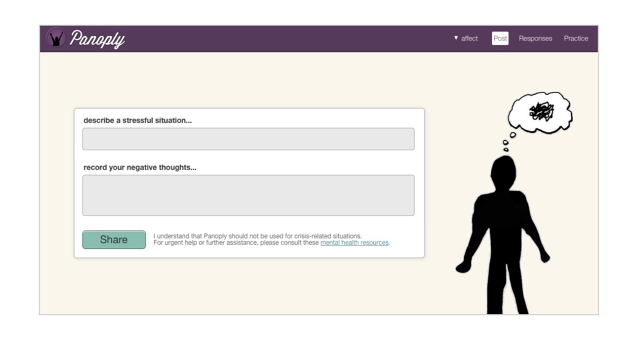Koko, an upcoming app based on an MIT experiment, is designed to build the world's first social network for dealing with depression. If it takes off, it could change the way some of us think about our problems.
Robert Morris grew up in the heart of Silicon Valley, just a few streets away from the garage where Steve Jobs got his start. But technology wasn't his passion. The only operating system he really cared about was the human mind. After getting his undergraduate degree from Princeton in psychology, Morris moved on to MIT for PhD work on how to make mental health accessible to everyone, where his failure to more than dabble in computer science quickly caught up to him.
"Everyone around me was this brilliant coder, and there was this expectation that if I had an idea, I could just whip up a platform instantly to test it, like anyone else," Morris remembers. He began getting depressed as he bashed his head against beginner's programming mistakes. "I thought to myself: I'm a horrible programmer. I'll never survive at MIT."

Then Morris discovered Stack Overflow, the computer programming Q&A site. When he had a programming issue, he'd make a post, and within hours, someone would chime in, telling him how he could fix it. Epiphany struck: "If a network like Stack Overflow can help me fix bugs in my code, why can't something like it also address bugs in my thinking?"
In Panoply, the experimental social platform Morris built as part of his dissertation at MIT, 166 volunteers were asked to join a social network for depression. Where Facebook asks, "What's on your mind?" when you post, Panoply would ask, "What's wrong?" The user is asked to describe what happened (for example, because she just lost her job) and then to try to quantify why that makes her upset (for example, because it means she has failed her family or worries she might never get hired again). The point is to articulate these morbid thoughts out loud so that other people on Panoply can help the user iron out the "bugs" in her thinking.
"Some people go into a downward spiral when laid off, where others are resilient and bounce right back," Morris says. "The best differentiator between those two types of people lies in their interpretation of what happened." With Panoply, a network of fellow users helps each other reinterpret what happened in a more productive light. For example, being laid off might just be the beginning of a new opportunity, and the person who was laid off might not have liked her job that much anyway. Meanwhile, the community rewards good answers with an upvoting system. But "good answers" aren't just well-meaning, stream-of-consciousness answers: The community is coached at every turn to pin their answers down so that they fall within the guidelines of cognitive therapy techniques that are proven to work.
During his time working on Panoply, Morris discovered that people who were suffering from mental stress and depression felt significantly better using Panoply than using other software-based depression techniques. Now, Morris is hard at work, spinning the ideas behind Panoply into an iPhone app called Koko, which he says will be available to everyone by fall.

Why mobile? According to Morris, the biggest challenge facing anyone who is looking to receive, or even give, mental health advice is staying engaged. "To be good at giving productive advice, or to think in a more healthy way, you have to practice, just like diet and exercise," Morris says. A mobile app encourages people to "snack" on Koko throughout the day, spending a few minutes here and there to practice positive thinking. Going mobile also removes some of the stigma of pursuing psychological help: An iPhone is inherently a more private and personal device than your work computer, or even your laptop at work.
The UI is still under construction, though Morris says he favors minimal design and simple UI patterns. Apps he aspires to emulate are Timehop and Duolingo. "They both do an exceptional job with UI design, and we'd love to make learning therapeutic techniques as fun and accessible as Duolingo makes learning different languages," he tells me.
Morris says he's not worried about how to monetize the app right now. It's pure startup mode: build the product, then figure out how to make it a sustainable business down the road. The idea of Koko someday selling ads against its users' depression is an unpleasant one, but Morris says that he wouldn't let that happen; his real goal is to help people.
Koko is still in the early stages of development, although it will probably be released before fall. As for the fact that the kid who once wanted to have nothing to do with Silicon Valley is now a full-time app developer? He just laughs. "I wasn't interested in tech at all until I got to MIT," he tells me. "I guess it must have seeped in."
You can sign up to get emailed when Koko is released here.